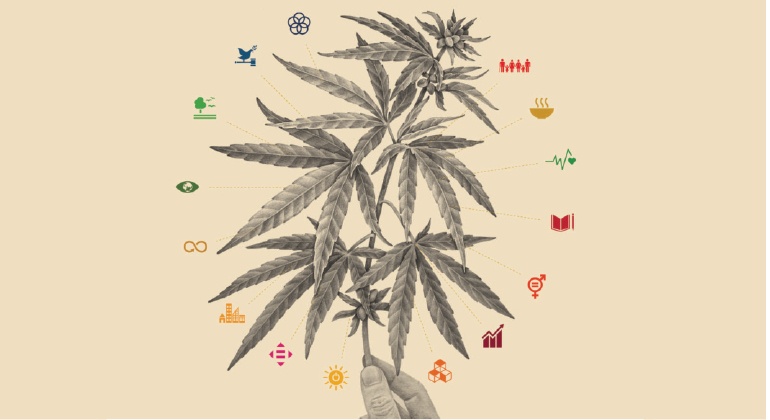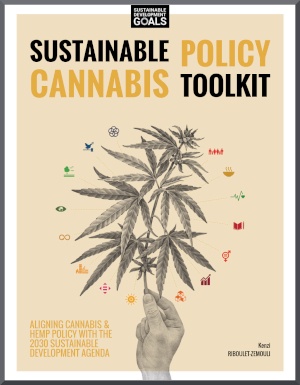Policy toolkit outlines role for hemp in fighting malnutrition, climate change

POSTED BY: HEMPTODAY® DECEMBER 6, 2021
Humanitarian aid policies and programs should rely on locally made hemp seed products in the fight against malnutrition, and cannabis farming should be promoted as a potentially significant contributor in the fight against climate change, according to a policy paper from leading independent cannabis researcher Kenzi Riboulet-Zemouli.
Those are two of the key recommendations in the Sustainable Cannabis Policy Toolkit, which maps out recommendations in the context of the United Nations 2030 Sustainable Development Agenda.
‘Essential ally’

“All things considered, with partnership and mutual understanding, Cannabis and its policies are an essential ally to tackle the issues of our time and build policies on all continents that are worth the collective intelligence of our century,” the paper concludes.
The history of human food consumption and contemporary research show cannabis-derived products to be a valuable food resource, the document notes, emphasizing the need to preserve and promote indiginous hemp varieties and the traditions associated with growing them.
“Local hemp seed production . . . can help secure continued, cheap, equilibrated and essential food supply in impoverished areas,” the toolkit suggests, noting that laws restricting hemp to a limited number of registered varieties can negatively affect efforts to preserve genetic resources and inhibit research & development.
Local genetics
Cannabis genetics developed, bred and conserved over generations by local communities can be important assets in advancing global food security amid growing population and threats to the environment, Riboulet-Zemouli says in the toolkit, which urges that local communities’ rights and ownership over their traditional food products and related genetics should be assured.
Cannabis can also play a significant role in reversing climate change due to its outsize ability to capture carbon dioxide from the atmosphere, the toolkit notes, and hemp-based raw materials are already proven as environmentally friendly, high-performance replacements for synthetic or petroleum-based plastics and other composites.
“Such material is key to building resilient and environment-friendly infrastructures and industries,” according to the document, which also underscores the economic development and environmental advantages inherent in hempcrete construction, which can foster sustainable localized supply chains and markets, Riboulet-Zemouli writes.
Meeting SDGs

Overall, the analysis found that hemp and its related policies can play a part in meeting at least 64 of the 169 specific goals included in the UN’s broader list of 17 Sustainable Development Goals.
This Sustainable Cannabis Policy Toolkit summarizes findings in previous papers on cannabis and sustainable development presented at (UN conferences) in 2018 and 2019. The 102-page document offers extensive analysis and policy recommendations for all forms of Cannabis, calling for a final rejection of the “war on drugs” and recognition of a “shared, broad, and multi-stakeholder consensus that the world needs to rethink Cannabis policies.”
The toolkit is dedicated to the late South African cannabis activist Julian (Jules) Stobbs.
A long-time cannabis activist and policy analyst, Riboulet-Zemouli founded and manages CND Monitor, which tracks cannabis policy worldwide.



